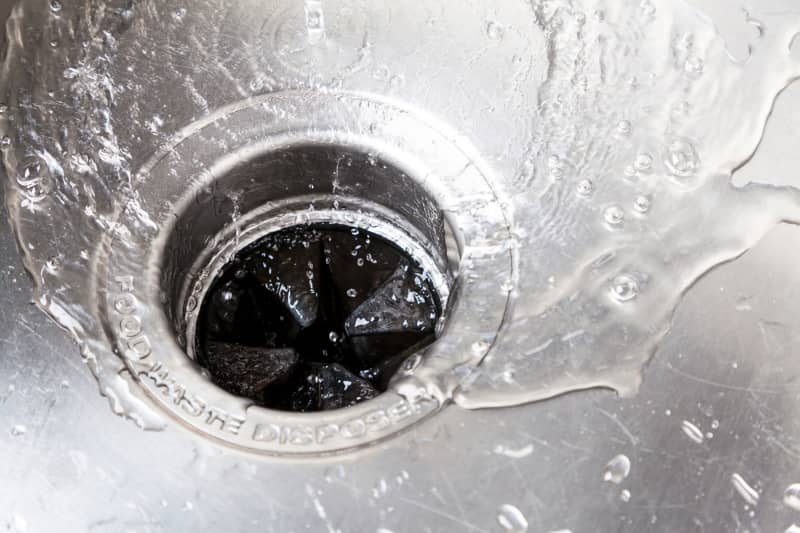4 Easy Ways to Clean a Garbage Disposal, According to Plumbers

Does your garbage disposal stink? Well, can you remember the last time you cleaned it? If the answers are yes and no, congratulations — you’ve clicked on the right story! Don’t worry, though — this is a judgment-free zone and we’re here to help you with everything you need to know about how to clean your garbage disposal.
As you’ve probably figured out, regularly cleaning your garbage disposal is important for preventing unwanted (read: stinky!) smells in your kitchen. But there are plenty of other reasons to prioritize this kitchen chore. “Keeping a disposal clean prevents clogs and extends its lifespan,” says Jennifer Rodriguez, chief hygiene officer of Pro Housekeepers. “Regular cleaning also minimizes bacterial growth, ensuring a hygienic kitchen environment.” Plus, it’s not as difficult as you may think!
How to Clean a Garbage Disposal
Not quite sure where to start? Here’s how to get that garbage disposal squeaky clean and odor-free, according to plumbers and professional cleaners.
How to Clean a Garbage Disposal with Baking Soda and Vinegar
According to Roy Barnes, owner of Service Force Plumbing, one of the most effective ways to clean your garbage disposal includes two common pantry ingredients: baking soda and vinegar. When you mix the two ingredients, bubbles form to break up (and remove!) dirt and debris. Plus, vinegar is acidic, so it cuts through grease, and baking soda is mildly abrasive, so it’s great at scrubbing surfaces clean. Baking soda is also an amazing deodorizer!
First, pour half a cup or so of baking soda into the garbage disposal. Then, add a cup of distilled white vinegar. “Allow this mixture to bubble for several minutes, then run the disposal while running water through it from the faucet,” suggests Barnes.
How to Clean a Garbage Disposal with Salt and Ice
Another easy-but-effective cleaning combo? Salt and ice. Ice is a commonly used tool for knocking debris away from the inside of the disposal. Another bonus: “Salt is an abrasive, which helps scrub away grease and grime,” Barnes says. “The addition of salt also results in a mixture that is colder than ice by itself, which can help solidify, break up, and carry away grease that’s in the disposal.”
Simply add two cups of ice cubes to the garbage disposal, followed by a cup of salt. Opt for salt with larger particles, such as rock salt or kosher salt. Then, run cold water from the faucet over the mix and turn on the garbage disposal for 15 to 20 seconds.
How to Clean a Garbage Disposal with Hot Water and Dish Soap
Lina DaSilva, a professional cleaner at Toronto Shine Cleaning, recommends using a combo of hot water and dish soap to deep-clean a garbage disposal. The two ingredients help break down grease and gunk, all the while fighting off potentially smelly germs, resulting in a clear (and hopefully stench-free) disposal.
First, boil a kettle of water, like you’re making a big pot of tea. Then, squirt your go-to dish soap down the disposal, followed by the entire pot of boiled water. After pouring both down the drain, turn on the disposal for 15 to 20 seconds.
How to Clean a Garbage Disposal with Cleaning Products
If you’d rather use a commercial cleaner, you can find plenty of dedicated garbage disposal cleaners in the cleaning aisle. One well-rated product is Affresh, a powder tablet that foams in your disposal to remove odors and scrub away stubborn gunk.
“Just turn on the sink with hot water running for 30 seconds, put the tablet in the disposal, turn on the disposal for 15 to 30 seconds, then turn off and rinse away,” says Axel Avery, a professional cleaner at Oakville Maids. One word of caution: Don’t use bleach or drain cleaners for the job, as Avery says they could damage your garbage disposal.
How to Maintain Your Garbage Disposal
Aside from cleaning it regularly, maintaining your garbage disposal can go a long way in ensuring its longevity (not to mention preventing gross odors in your sink). “Of course, the less you put down your disposal, the less junk will build up in it, and the less often you’ll need to clean it,” says Barnes.
When you do use your disposal, be sure not to put the wrong things down the disposal. No bones or pits, grease, celery or other fibrous foods, coffee grinds, egg shells, potatoes, pasta, or any other super-starchy things. Most fruit and veggie scraps, especially citrus (rind included!), and scraps of meat are all OK.
Also, when you use your disposal, keep it going while running hot water for about a minute. This should keep your pipes clean and clear of residual food and your sink from stinking.

